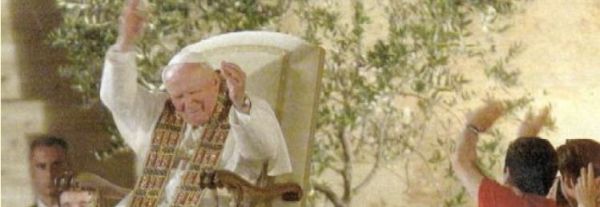2. In the Gospel, Jesus reminds us that we are all called to salvation and to live with God, because there are no privileged people when it comes to salvation. Everyone must pass through the narrow gate of renunciation and self-giving. The prophetic reading vividly illustrates God's plan to gather all people into unity, to make them share in his glory. The reading from the New Testament urges us to endure trials as purification coming from the hands of God, 'for the Lord disciplines those he loves' (Heb 12:6; Pr 3:12). But the reasons for these readings can be said to be concentrated in the Gospel passage.
The question about the fundamental problem of existence: "Lord, are there few who are saved?" (Lk 13:23), cannot leave us indifferent. Jesus does not answer this question directly, but urges us to be serious in our intentions and choices: "Strive to enter through the narrow gate, for many, I tell you, will seek to enter and will not be able to" (Lk 13:24). The serious problem takes on a personal, moral and ascetic angle in Jesus' words. He vigorously affirms that achieving salvation requires sacrifice and struggle. To enter through that narrow gate, one must, according to the Greek text, "agonise", that is, struggle vigorously with all one's strength, without ceasing, and with firm determination. The parallel text in Matthew seems even more categorical today: "Enter through the narrow gate, for the gate is wide and the way is broad that leads to destruction, and many enter through it; but the gate is narrow and the way is hard that leads to life, and few find it" (Mt 7:13-14).
The narrow gate is first and foremost the humble acceptance, in pure faith and serene trust, of the word of God, of his perspectives on ourselves, on the world and on history; it is the observance of the moral law, as a manifestation of God's will, in view of a higher good that fulfils our true happiness; it is the acceptance of suffering as a means of expiation and redemption for oneself and for others, and as the supreme expression of love; the narrow gate is, in a word, the acceptance of the Gospel mentality, which finds its purest expression in the Sermon on the Mount.
In short, we must follow the path traced out by Jesus and pass through the gate that is himself: " I am the door; if anyone enters through me, he will be saved' (Jn 10:9). To be saved, we must take up our cross as he did, deny ourselves in our aspirations contrary to the Gospel ideal, and follow him on his way: 'If anyone wishes to come after me, let him deny himself and take up his cross daily and follow me' (Lk 9:23).
Dear children and brothers and sisters, it is love that saves, love that is already on earth, the inner bliss of those who, in the most varied ways, in meekness, patience, justice, suffering and tears, forget themselves and give themselves. The path may seem steep and difficult, the door may seem too narrow. As I said at the beginning, such a prospect exceeds human strength, but persevering prayer, confident supplication, and the intimate desire to do God's will will enable us to love what he commands.
[Pope John Paul II, homily at the Opera S. Paolo Castelgandolfo, 24 August 1980]












